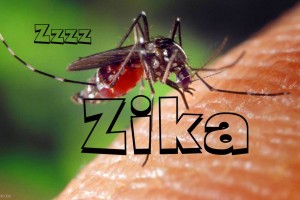- Home
- Editorial
- News
- Practice Guidelines
- Anesthesiology Guidelines
- Cancer Guidelines
- Cardiac Sciences Guidelines
- Critical Care Guidelines
- Dentistry Guidelines
- Dermatology Guidelines
- Diabetes and Endo Guidelines
- Diagnostics Guidelines
- ENT Guidelines
- Featured Practice Guidelines
- Gastroenterology Guidelines
- Geriatrics Guidelines
- Medicine Guidelines
- Nephrology Guidelines
- Neurosciences Guidelines
- Obs and Gynae Guidelines
- Ophthalmology Guidelines
- Orthopaedics Guidelines
- Paediatrics Guidelines
- Psychiatry Guidelines
- Pulmonology Guidelines
- Radiology Guidelines
- Surgery Guidelines
- Urology Guidelines
Zika outbreak to end in two to three years, scientists predict

The Zika outbreak rampaging through Latin America will likely burn itself out in the next two to three years, based on the fact that people develop immunity to the virus after an initial infection, British scientists said.
The researchers, whose work is published in the journal Science, estimated that infections from the mosquito-borne virus will become so widespread in affected countries that populations will develop what is called "herd immunity." This occurs when a high percentage of a population has become immune to an infection either through developing natural immunity or through vaccination, making a wider outbreak less likely.
That would prevent further transmission of the Zika virus for at least a decade, with only smaller, intermittent outbreaks, they said.
"Because the virus is unable to infect the same person twice thanks to the immune system generating antibodies to kill it the epidemic reaches a stage where there are too few people left to infect for transmission to be sustained," study author Neil Ferguson of the School of Public Health at Imperial College London said in a statement.
There is no vaccine or specific treatment for Zika.
The study was based on mathematical models of the virus, which has been shown to cause microcephaly, a birth defect marked by small head size that can lead to severe developmental problems in babies.
The connection between Zika and microcephaly first came to light last fall in Brazil, which has now confirmed more than 1,600 cases of microcephaly that it considers related to Zika infections in the mothers.
The researchers compared data from Zika's transmission across Latin America to data on similar viruses, such as dengue, to create a model of projected Zika transmission. They forecast that large scale transmission will end in two to three years and not resume for a decade.
Similar patterns have been seen in related viral infections, including chikungunya, Ferguson said.
Ferguson said it may be too late to try to control mosquito populations to prevent widespread Zika transmission, and mosquito abatement efforts might delay and prolong the outbreak, which will eventually die out naturally.
"Slowing transmission between people means the population will take longer to reach the level of herd immunity needed for transmission to stop. It might also mean that the window between epidemics which we predict may be over a decade could actually get shorter," he said.

Disclaimer: This site is primarily intended for healthcare professionals. Any content/information on this website does not replace the advice of medical and/or health professionals and should not be construed as medical/diagnostic advice/endorsement or prescription. Use of this site is subject to our terms of use, privacy policy, advertisement policy. © 2020 Minerva Medical Treatment Pvt Ltd